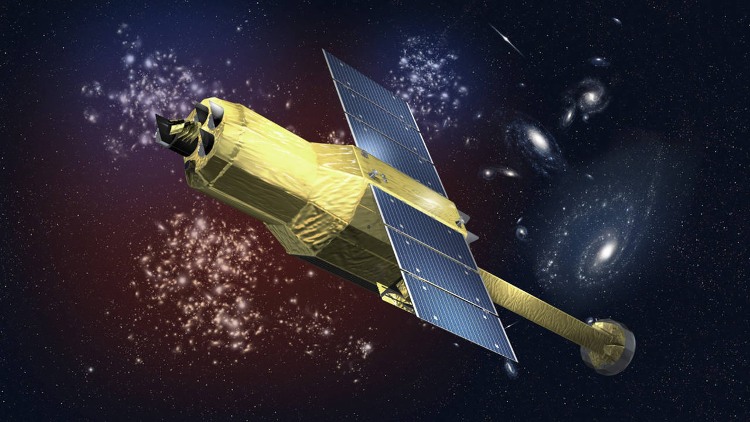Japan 's 273 million dollar black hole satellite is missing
Japanese cosmologists are searching for traces of Hitomi, a $ 250 million satellite, launched into orbit to study black holes.

Black hole Hitomin satellite is worth 273 million USD.(Photo: JAXA)
According to the Japan Aviation Discovery Agency (JAXA), the modern Hitomi satellite (Eye) equipped with advanced technology must have contacted the Earth, but no one knows its exact location. . Discovery News reported that the device only made brief contact with the research team on the ground, then disappeared completely. American scientists think it may have broken into pieces.
" We are seriously considering the situation ," Saku Tsuneta, director of JAXA's Institute of Astronautics and Astronautics, said in a press conference on March 27. According to JAXA spokesman, 40 technicians are trying to determine the position of the satellite and establish contact with it.
Hitomi satellite was jointly developed by JAXA with the US Aerospace Agency (NASA) and many other organizations, launched into orbit on February 17. Hitomi's design helps it observe X-rays emitted from black holes and galaxy clusters. Black holes have never been observed directly, but scientists believe they are collapsing stars with gravity so great that nothing can escape.
Missing satellite worth $ 273 million, including the cost of launching, rotating on orbit at an altitude of about 580 km. The rocket carries a satellite launched from Tanegashima Space Center in southern Japan.
- Video: Japan launches a satellite to study black holes
- The first time I took a picture of a black hole three million times bigger than Earth
- Find the missing link on the black hole
- 740 million light years away is a completely different universe of black holes
- Detecting black holes 'monsters' 350 million times more massive than the Sun.
- Discover the mystery of the most exotic black holes in the universe
- The discovery of the
- If a 'million dollar' satellite suddenly disappears, what will NASA do?
- Discovering 'super black holes' is 12 times bigger than the Sun.
- Discovering the Milky Way's new black hole
- Evidence of the power of black holes
- Spending $ 19 million to get the first picture of black hole history
 Van Allen's belt and evidence that the Apollo 11 mission to the Moon was myth
Van Allen's belt and evidence that the Apollo 11 mission to the Moon was myth The levels of civilization in the universe (Kardashev scale)
The levels of civilization in the universe (Kardashev scale) Today Mars, the sun and the Earth are aligned
Today Mars, the sun and the Earth are aligned The Amazon owner announced a secret plan to build a space base for thousands of people
The Amazon owner announced a secret plan to build a space base for thousands of people